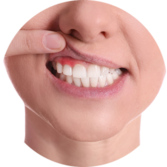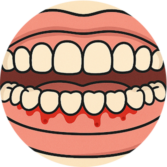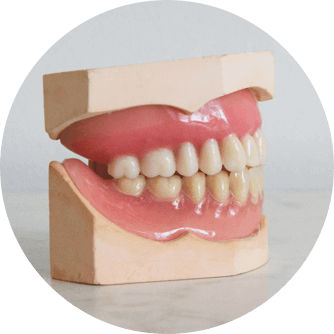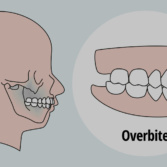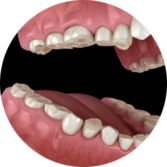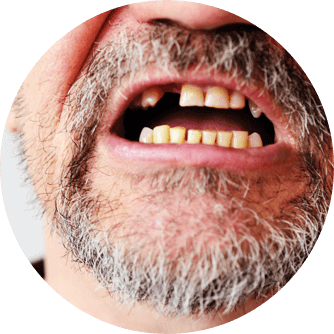Toothache: Causes, Treatments, and When to See Your Dentist
Have you ever experienced a sudden, sharp pain or persistent ache in your tooth? Toothaches are common, but they can indicate underlying issues needing prompt dental attention. On this page, we'll explore why toothaches happen, how you can manage them at home, and when it’s essential to visit your dentist.
Common Problems
Causes of Tootache
A toothache usually occurs when the sensitive inner layer of your tooth (known as dental pulp) becomes inflamed or irritated. This inflammation can arise from:
- Tooth decay: Cavities form when bacteria create holes in your tooth enamel.
- Cracked or damaged teeth: Even small cracks can cause significant pain.
- Loose or broken fillings: These expose sensitive areas of your tooth.
- Dental abscess: A bacterial infection causing severe throbbing pain.
- Receding gums: Exposure of sensitive tooth roots can cause discomfort.
Other issues that mimic toothache pain include gum ulcers, wisdom teeth eruption, sinus infections, jaw joint disorders, and teeth grinding (bruxism).

Symptoms of Toothache
Toothaches vary significantly in how they feel and behave. Symptoms include:
- Sharp, stabbing pain
- Persistent dull ache
- Sensitivity to hot, cold, or sweet foods and drinks
- Pain when biting or chewing
- Swelling around the affected tooth, gums, or face
- Headaches or earaches
- Bad breath or an unpleasant taste in your mouth
- Fever, chills, or general discomfort indicating an infection
Sometimes, pain in your tooth can be difficult to pinpoint, often feeling like it comes from your ear or sinuses.
Managing Toothache at Home
If you’re experiencing mild tooth pain, here are some steps you can take for temporary relief:
- Pain relief medication: Over-the-counter medications like paracetamol or ibuprofen can ease discomfort. Avoid aspirin for children under 16 years old.
- Saltwater rinse: Swish warm saltwater around your mouth to reduce inflammation and soothe minor irritation.
- Cold compress: Apply an ice pack wrapped in a towel to your face for 20 minutes to reduce swelling and relieve pain.
- Keep your head elevated: Resting with your head raised on pillows can ease throbbing pain, especially at night.
- Avoid extreme temperatures: Steer clear of very hot, cold, or sweet foods and drinks, as they might worsen the pain.
These remedies might help in the short term, but a toothache usually requires professional dental care to address the underlying cause.


After a When Should You Visit Your Dentist?
Don’t ignore persistent or severe toothaches. Make an appointment with your dentist if:
- The pain lasts more than 1-2 days.
- Swelling occurs around your face or jaw.
- Pain increases when you open your mouth.
- You experience additional symptoms like fever, chills, or difficulty swallowing or breathing.
In case of severe symptoms like difficulty breathing or swallowing, or intense swelling and pain, seek emergency medical care immediately.
How We Treat Toothaches at Knight Street Dentists
At Knight Street Dentists, we carefully evaluate your symptoms and carry out thorough examinations, including dental X-rays, to identify the exact cause of your toothache. Restorative dentistry treatment options might include:
- Dental fillings: We remove decay and repair your tooth with a strong, durable filling.
- Dental crowns: For more extensive damage, we fit a crown to restore your tooth’s shape and strength.
- Root canal therapy: If infection reaches your tooth’s pulp, we remove the infected tissue and seal your tooth to prevent further damage.
- Tooth extraction: When a tooth is severely infected or damaged beyond repair, extraction might be necessary. We offer solutions such as dental implants or bridges to replace extracted teeth.
- Antibiotics: If there’s an infection, we may prescribe antibiotics to manage it effectively.
Prevention Is Better Than Cure
Regular oral hygiene and dental check-ups are your best protection against toothaches. Here’s how you can keep your mouth healthy:
- Brush twice daily with fluoride toothpaste and a soft-bristled brush.
- Floss every day to remove plaque between teeth.
- Use antibacterial mouthwash regularly.
- Limit sugary foods and drinks to meal times.
- Avoid smoking, as it worsens dental problems.
- Visit your dentist regularly for check-ups and professional cleanings.
Don't Wait—See Knight Street Dentists Today
At Knight Street Dentists, your dental health is our priority. Friendly, compassionate, and dedicated to your comfort, we’re here to help with any toothache or dental concern you have. Early treatment ensures less pain and more straightforward solutions.
Contact us today for exceptional dental care in Shepparton!
While we’re all prone to the threat of tooth decay, our team is here for you, with a proven prevention plan and pain-free treatments. Ready to smile again?
We’re human & we’re here to help
Fill out this contact form and we’ll be in touch

